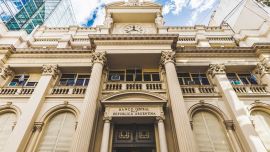Vice-President Cristina Fernández de Kirchner has finally broken her silence after the assassination attempt against her, declaring “I feel that I am alive because of God and Virgin Mary" in her first public appearance since the failed attack.
In an address to slum priests and other religious leaders that took place in the Senate on Thursday, exactly two weeks after the event, Fernández de Kirchner revealed that Pope Francis, the head of the Catholic Church, had contacted her a day after Fernando André Sabbag Montiel aimed a gun at her at point blank range and attempted to kill her. The assailant pulled the trigger twice but failed to fire a shot.
"Pope Francis called me very early the next day. Early on Friday [September 2] he called me, we spoke on the phone and he told me something like that acts of hatred and violence are always preceded by words and verbs of hatred," Fernández de Kirchner told representatives of the Catholic Church who work in poor neighbourhoods.
"I wanted my first public appearance to be with you. I feel that I am alive because of God and Virgin Mary,” said the former president.
“And if I am alive for God and the Virgin, I had to [speak] surrounded by slum priests and sisters," she added.
"I don't want to talk about that day," she said, her voice breaking.
In a similar vein, she referred to the controversial Mass that the Frente de Todos ruling coalition held last Saturday in the Luján Basilica, which opposition lawmakers did not attend.
"I would have liked to be there, but there was going to be a lot of security, and I did not want to hinder a very special event with my presence," she said.
"Pray for me; I need it," she added in her first public statement since Sabag Montiel tried to shoot the vice-president in a crowd outside her Recoleta home.
The attacker and three others are in custody for the attempted assassination. Sabag Montiel had blended in among the supporters who waited for her outside her home to express solidarity with her after prosecutors requested a 12-year prison sentence and a life ban from holding political office in a trial for alleged corruption.
In her speech, Fernández de Kirchner said the attack broke a social agreement reached when the country returned to democracy in 1983.
“Recovering democracy wasn’t just being able to vote, it was also a return to life and rationality, to be able to discuss politics without violence,” she said. “What happened the other day ruptured that, and we have to rebuild it urgently.”
The failed September 1 attack outside her apartment building in the wealthy City neighbourhood of Recoleta stunned the nation. While politicians across the spectrum condemned the violence and wished the vice-president well, that night President Alberto Fernández declared a national holiday, and lashed out at opposition leaders and the media in a televised address. Violence against political figures has been rare in Argentina since the return to a democratic system.
“We need to deal with this through the institutions and with civic respect,” said Fernández de Kirchner, who praised her supporters for turning in the gunman to the police rather than attempting to take matters into their own hands.
Though never speaking in person, Fernández de Kirchner has previously addressed the incident on social media.
On Monday, the former head of state tweeted an image of a front page of the Clarín newspaper, highlighting an article that read, "The bullet that did not come out and the ruling that did."
Accompanying the vice-president during her address were various members of the Frente de Todos caucus from the upper house, including Oscar Parrilli from Neuquén, María Teresa González from Formosa, Edgardo Kueider from Entre Ríos, Carlos Linares from Chubut, Matías Rodríguez from Fuegian, Martín Doñate from Rio Negro and Adolfo Rodríguez Saá from San Luis.
– TIMES/BLOOMBERG


























Comments